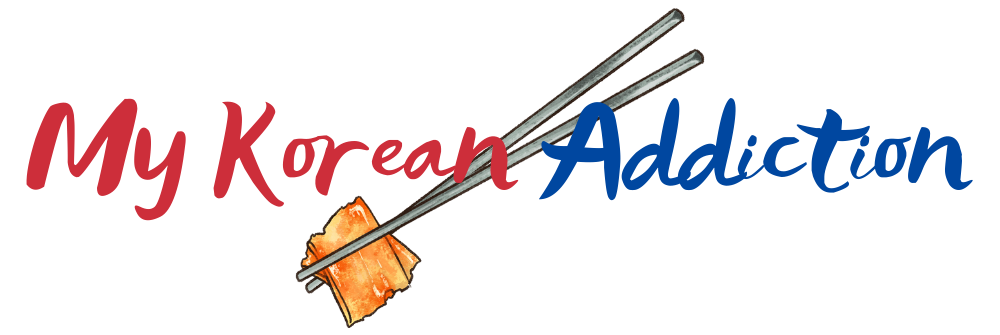Ever clocked out of work at 10 pm? Got yelled at by your boss every day?
If you’re like most Kdrama junkies, you’ve probably heard that working in Korea isn’t for the faint of heart. Daily overtimes, screaming bosses, forced company dinners. Your favorite Kdrama surely has a thing or two to say about Korean work culture.
But just how true are they? Is working in Korea really that bad? Or is it just like anywhere in the world?
Korea Work Culture – 10 Surprising Facts
Well, one thing’s for sure. The work culture in Korea will shock you! And here are 10 of the most surprising facts you should know.
- 52-hour work weeks
- Hierarchy: Know your place
- Questioning your boss is a no-no
- Drinking with your boss to get promoted
- Calling your coworkers by their title
- Getting hired because you’re pretty
- No sick leaves
- Lots of gift-giving
- Getting bullied by your boss
- Going to resorts with the entire company (to get plastered)
1. 52-hour work weeks

The Kdramas weren’t lying when the hardworking employee clocked out at 10 pm. It’s pretty normal in Korea to work very long hours, even as much as 12 hours per day! And just until 2018, Korean employees were even legally allowed to work 68 hours per week.
This has since been reduced to 52 hours. But then again, that’s only for small businesses. And that’s still a pretty long workweek for average standards!
It’s no wonder then that in 2021, Korea had the fifth longest working hours in OECD. It’s such a big problem that they even have the term 과로사 (gwarosa), meaning death by overwork.
But is it really 12+ hours of continuous work per day? Most employees say they actually do lots of stuff in between, like surfing the net or online shopping. It’s good if you want to take your time, but not if you want to spend more time with your loved ones at home.
And if you finished your work early and try to leave on time, you might just earn your boss’s ire. You’re expected to leave only after your superiors have left. So sometimes, the actual work is just a few hours. They just stay late to please their superiors (more on this later).
But if you’re feeling scared now, don’t worry. The work scene is starting to change. And more and more companies are now following the 40-hour rule.
2. Hierarchy: Know your place

Just like in Korean society, hierarchy is key in Korean work culture. How you act when you’re with your colleagues is decided by your age and position. That’s unlike in American offices, where you and your colleagues act like equals.
So what does this mean? Well, your opinion won’t matter much. You can’t say no to your boss, you’ll sit closes to the door, etc.
You’ll learn about this more in the next example.
Read More: Why Do Koreans Bow?
3. Questioning your boss is a no-no

Not so sure about your boss’s “wonderful” idea? Nope, don’t even think about it. Never ever second guess your boss, especially in public.
As a junior, your role is basically to listen and take commands from your boss. You’re not expected to speak your thoughts. Even if you think you got a better solution to the problem.
As expected, this structure can sometimes lead to communication problems. That’s why this strict work hierarchy is blamed for the ‘90s plane crashes. We’re not sure how true that is, but it’s definitely some food for thought.
But what if you think your suggestion is super necessary? As much as possible, talk to your boss privately. You may even write down your thoughts on a document, just for formality.
Read More: 15 Things Not To Do In Korea
4. Drinking with your boss to get promoted

Almost every Korean employee has gone to a 회식 (hoesik), or after-work gathering. Hoesiks are usually meals with your boss and co-workers, paid for by the company.
The problem comes in when you can’t say no to a hoesik, especially if it’s your boss inviting you. And it gets worst when your boss demands a second, third, or even fourth round at the bar and karaoke. And that’s after a long day at work!
But for some, hoesiks are a chance to get on their boss’s good side. That means a potential promotion in the future.
Whatever you think about this practice, it’s clearly a sign of workplace hierarchies in Korea. And if you dread it, here’s some good news: hoesiks are becoming less common and less required. Work culture in Korea has seen lots of changes in recent years.
You May Also Like: How To Drink Soju – Full Guide
5. Calling your coworkers by their title

In your current workplace, you probably call your coworker by their first name. But you should never ever do this in Korea, even to colleagues of the same rank! You’re expected to call your colleagues, especially your boss, by their title.
Otherwise, you might get called rude.
That means they refer to their bosses simply as “Team Leader,” “President,” “CEO,” etc. But if you don’t know someone’s title, it’s safest to call them by Mr/Ms + full name.
6. Getting hired because you’re pretty

For many Koreans, lookism is a major problem in their country. Here, those with pretty faces get privileged — even in the workplace.
It’s an open secret that employers in Korea judge job applicants for their looks. Attaching a photo in your CV is a must when applying for work here. And between two equally-competent candidates, most employers will choose the prettier face.
Read More: Korean Female Beauty Standards & Korean Male Beauty Standards
7. No sick leaves

Korean employers aren’t legally required to provide sick leaves. An exception is when your sickness is work-related, where you can get paid leave. Otherwise, you have to tough it up at work even if you’re coughing to death.
No wonder many employees still showed up at work even with a COVID-19 infection. So to stop the pandemic, the government is now running trials of paid sick leaves in some areas of the country.
8. Lots of gift-giving

Giving gifts to your co-workers isn’t something new. But it’s a bit more intense in Korea. Here, there are many more occasions where you should give, or receive, a nicely-wrapped gift.
For example, Korean workers usually hand out gifts after their honeymoon or maternity leave. But they might find a present on their table after their baby’s 100th day. Or when their spouse got promoted.
All in all, gift-giving is a rich culture in Korean workplaces. Participating in one could be a good way to form bonds with your colleagues.
9. Getting bullied by your boss

Because they’re higher in the hierarchy, Korean superiors are free to act however they want with you. That includes LOTS of scolding. And we mean getting yelled at behind closed doors, but it’s so loud that your coworkers outside can hear it, too.
If you’re a foreigner, this might seem like verbal abuse. But this is a typical workplace dynamic for Koreans.
10. Going to resorts with the entire company (to get plastered)

Now to end our list, here’s something (possibly) fun about Korean work culture!
As you’ve probably seen by now, Korean work culture values group solidarity. That’s why many Korean companies hold MTs (Membership Trainings). It’s usually a yearly thing where the whole company or team goes to resorts just to bond and have fun.
Aside from resorts, MTs can also take place in the mountains or countryside. Basically anywhere far from the company. It’s a chance to form relationships with coworkers. And get plastered.
—
Korean work culture is definitely interesting. Some of their practices might shock or even alarm you. But they definitely don’t have a shortage of heartwarming traditions among coworkers.
After reading our list, what do you think? Would you like to try your luck in a Korean workplace?
For more info about Korean culture, make sure you also read our posts about Korean superstitions and Korean stereotypes that are actually not true.

